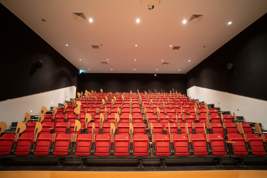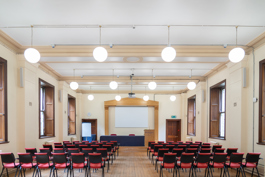Keynote Speakers:
Professor James P. Spillane
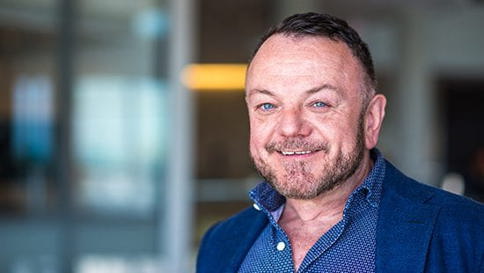
Biography:
We are delighted to welcome Professor James P. Spillane, the Spencer T. and Ann W. Olin Professor in Learning and Organizational Change at Northwestern University’s School of Education and Social Policy, as a keynote speaker for ATEE 2025. Professor Spillane, who began his career as a primary school teacher at St. Mary’s on the Hill N.S. in Cork, Ireland, is now internationally recognised for his pioneering research on educational policy, school reform, and leadership.
With extensive experience in examining the complex interactions between education policy and classroom practice, Professor Spillane’s work shines a light on critical issues that resonate deeply with the ATEE 2025 themes. Professor Spillane’s research, particularly his studies on distributed leadership and organisational change in schools, offers a transformative perspective on school leadership. His work emphasises the importance of organisational structures that not only support instructional advice-seeking and collaborative learning but also cultivate authentic teacher identities—a theme at the heart of this year’s conference. By focusing on how leadership and policy can create an environment that nurtures teacher growth and professional identity, Professor Spillane’s insights are invaluable for educators and policy makers in the pursuit of high-quality, resilient and adaptable education systems.
Having been elected to the US National Academy of Education and the American Academy of Arts and Sciences, Professor Spillane’s contributions have shaped the fields of education policy and school leadership worldwide. His keynote will invite attendees to reflect on how we can make explicit connections between teacher education, teacher development and identity formation, encouraging a systemic approach to empowering educators at every stage of their careers.
Keynote address, Wednesday 27th August:
Instructional Improvement by Design: (Re)Building Educational Systems to Center Ongoing Professional Learning
Conceptualizing teaching as a socially constructed practice, I explore the essential resources for supporting instruction and its improvement. Mapping backwards from the classroom to the school, I consider the challenges of supporting instructional improvement at the school level with particular attention to the role of educational leadership including but not limited to the school principal. Specifically, I layout a distributed perspective for thinking about the practice of leading improvement in instruction and examine its entailments. Identifying the limitations of confining our deliberations exclusively to the school level, I make the case for a systemwide, or a systemic approach centered on supporting the professional learning of all educators. To frame conceptually this systemwide way of thinking about the challenge of instructional improvement I do two things. First, I engage a ‘communities of practice’ framework for thinking about the work and consider its entailments for the practice of instructional improvement. Second, I argue for a system building mindset and flesh out what the work of system building involves for instructional improvement in general and professional learning in particular. In conclusion, I examine some core and interrelated challenges in the decision-making that will be necessary for (re)building education systems to support ongoing professional learning. First, I argue that more comprehensive models of problem solving that reach beyond techno-rational notions of problem solving and embrace the dilemmas inherent in the work and by extension embracing dilemma management. Second, I show how the school subject is a critical consideration and powerful explanatory factor in any effort to understand the work of education system building fundamentally shaping the decision-making process from the classroom to the school and beyond to the system.
Professor Cathrine Edelhard Tømte
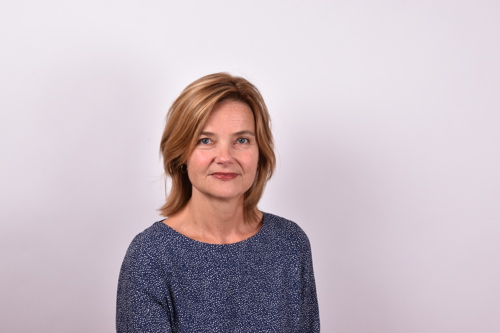
Biography:
Cathrine Edelhard Tømte is full professor at Dep. of Information Systems at University of Agder, deputy director of CeDIT, Centre for Digital Transformation, and visiting professor (professor II) at SLATE, Centre for the Science of Learning and Technology, University of Bergen.
She has a PhD (Dr. Art) from Norwegian University of Technology and Science, NTNU. Her research interests include technology, society, and education. Tømte's work has been published in international journals such as Computers & Education, European Journal of Teacher Education, Teachers and Teaching, and Quality of Higher Education, to mention some. She has also co-edited books at Palgrave and Edward Elgar. At University of Agder, she is responsible for courses on professional digital competences for student teachers, teachers, and school leaders.
Keynote address, Thursday 28th August:
Rethinking professional digital competence for teachers in a world of artificial intelligence
The rapid pace of digital technological development has led to the integration of various digital technologies within educational systems, with many scholars referring to this trend as 'platformization'. Artificial intelligence has long been embedded in these various platforms and resources that schools have implemented, but the recent prominence of generative language models in education, for both students and teachers, marks a new era. Consequently, teachers must update their digital competence to understand the pedagogical applications of such technology, as well as address privacy and ethical dilemmas. Additionally, they must educate their students on what generative AI is, its possibilities and limitations, and the appropriate and permissible uses within the school context, including measures to prevent academic cheating. In this keynote, I aim to reflect on the current situation, exploring what teachers need to know and how they can become confident users of generative AI while maintaining their professional identity.
Professor Anne Looney
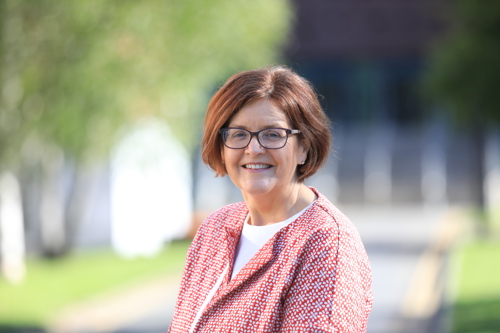
Biography:
Professor Anne Looney is the Executive Dean of Dublin City University’s Institute of Education, Ireland’s largest faculty of education. From 2001 until 2016 she was the CEO of the National Council for Curriculum and Assessment. She also held the position of Interim CEO at the Higher Education Authority before joining DCU in 2017.
Her current research interests include assessment policy and practice, curriculum, teacher identity and professional standards for teachers and teaching. She has also published on religious, moral and civic education, and education policy. She has been a team member for reviews for the OECD on school quality, curriculum, and assessment systems, and acts as a technical expert for the European Commission on projects in initial teacher education. She is the current president of the International Professional Development Association.
Keynote address, Friday 29th August:
The Space of Contradictions
I came across the concept of the ‘space of contradictions’ in the professional identity of teachers long after I first encountered the phenomenon as a teacher in the classroom. As a teacher in a post-primary school in Dublin in the 1980’s, I taught two subjects. English was included in the diet of examinations; the other, religious education, was not. In a moment of insight and with a certain amount of disappointment, a student of mine for both subjects observed at the end of a lesson that being taught by me was like being taught by ‘two totally different people’.
Later, the work of Emer Smyth and her colleagues on the experience of students in Irish second level schools, shed further light on the contradiction between what the students saw as ‘good teaching’ and the teaching they subsequently came to value as they moved closer to high-stakes tests.
Authenticity is generally conceptualised as a desirable state of a person, organisation or institution, in which there is a striving for truth, genuineness and transparency. Alongside the development of research interest in authenticity more broadly, there has been a recent surge of interest in teachers’ authenticity in particular. A systematic review (Plust et al, 2020) usefully identified the attributes associated with authenticity in the teaching profession, as well as the factors that might inhibit or suppress such authenticity; the borders of that ‘space of contradictions’ inhabited by teachers in their professional lives.
This paper will attempt to map this space in more detail and consider the navigational tools needed by teachers living and working in the age of the performative and the representational.
